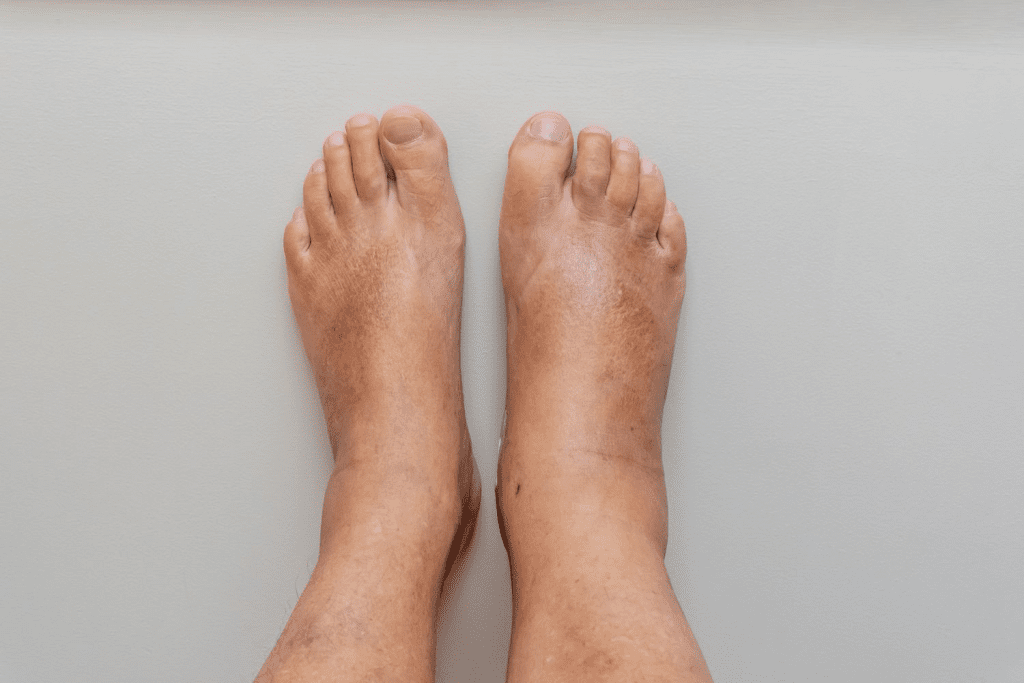Atherosclerosis, a condition in which cholesterol and other substances accumulate in your arterial walls, can silently progress over time, leading to restricted blood flow. This blockage can cause severe health problems, including heart attacks and strokes. Recognizing the warning signs of clogged arteries is essential for preventing life-threatening conditions. Below, we’ll outline 10 key signs that your arteries may be clogged and provide actionable steps you can take to protect your health.

Understanding Clogged Arteries: The Silent Threat
Clogged arteries can slowly develop over years without noticeable symptoms, making it a silent yet dangerous condition. Atherosclerosis is the primary culprit, forming plaques within the arteries, which can restrict the flow of oxygen-rich blood to the heart, brain, and other essential organs. While clogged arteries often don’t manifest noticeable symptoms in their early stages, they can lead to serious health complications if left untreated.
Let’s explore the top warning signs and learn how to manage this condition effectively.
1. Chest Pain (Angina)
One of the most common signs of clogged arteries is chest pain or discomfort, also known as angina. This pain typically feels like pressure, tightness, or a squeezing sensation in your chest. It can radiate to other parts of your body, including your shoulders, arms, neck, or back. If you experience chest pain regularly, it’s a red flag that your heart isn’t receiving enough blood.
Ignoring angina could lead to a heart attack. If you experience sudden, intense chest pain, seek medical help immediately.
2. Shortness of Breath
Have you found yourself out of breath while climbing stairs or doing routine tasks? Shortness of breath can indicate clogged arteries. When your heart doesn’t receive enough oxygenated blood, your body compensates by making you feel winded, even with minimal exertion. Persistent shortness of breath should never be ignored, as it can be an early symptom of coronary artery disease.
3. Fatigue: When Simple Tasks Feel Draining
Feeling excessively tired, even when you haven’t done much, can be a sign of poor blood circulation. Blocked arteries make it harder for the heart to pump blood, leaving you feeling fatigued throughout the day. Chronic fatigue, especially when paired with other symptoms like chest pain or shortness of breath, should prompt you to visit a healthcare provider.
4. Dizziness and Lightheadedness
If you experience frequent dizziness or feel lightheaded, it may be due to insufficient blood flow to your brain. Clogged arteries can reduce the amount of oxygen reaching your brain, leading to these disorienting sensations. It’s essential to pay attention to this warning sign, particularly if it happens often or in conjunction with other symptoms of heart disease.
5. Swelling in the Lower Extremities (Edema)

Clogged arteries don’t just affect your heart—they can impact your limbs, too. If your feet, ankles, or legs swell regularly, this could indicate poor circulation. When your heart struggles to pump blood efficiently, fluid can accumulate in the lower extremities, leading to a condition called edema. This swelling can be a symptom of congestive heart failure or severe arterial blockages.
6. Heart Palpitations: The Fluttering Warning
Do you sometimes feel like your heart is racing or skipping beats? These irregular heartbeats, or palpitations, can signal clogged arteries. When the heart isn’t receiving enough blood, it compensates by beating faster or irregularly. While occasional palpitations are normal, frequent or severe episodes warrant a conversation with your doctor.
7. Erectile Dysfunction: A Sign for Men
For men, erectile dysfunction (ED) can be one of the earliest signs of clogged arteries. Reduced blood flow to the penis often stems from blockages in the arteries. While ED can result from various factors, it is closely linked to cardiovascular health. Addressing ED with a healthcare provider may uncover hidden heart problems that can be managed before they lead to more severe consequences.
8. Jaw or Throat Pain

Pain in the jaw or throat, especially when it worsens with exertion, could be a sign of a heart problem rather than a dental issue. Clogged arteries can cause discomfort in areas beyond the chest. If you notice this type of pain along with other symptoms like chest tightness, it’s important to seek medical advice.
9. Numbness or Weakness in Limbs
Sudden numbness or weakness, particularly on one side of your body, could signal a stroke caused by blocked arteries in the brain. Strokes happen when blood flow to the brain is severely restricted. If you experience these symptoms, seek emergency medical attention immediately, as quick intervention can save lives and prevent long-term disability.
10. Slow Healing Wounds: A Circulatory Warning

Do you notice that cuts or bruises take longer to heal than they used to? Slow-healing wounds, particularly on your legs and feet, can be a sign of poor circulation caused by clogged arteries. When blood flow is reduced, the body struggles to deliver nutrients and oxygen to damaged tissue, delaying the healing process.
What to Do if You Notice These Signs
If you recognize any of these warning signs, it’s crucial to take action immediately. Here’s what you should do:

- Consult a Doctor: Your healthcare provider can perform diagnostic tests such as blood work, an EKG, or an angiogram to determine the extent of arterial blockage.
- Adopt a Heart-Healthy Lifestyle: Change your diet to reduce saturated fats, cholesterol, and processed sugars. Incorporate more whole grains, fruits, vegetables, and lean proteins into your meals.
- Exercise Regularly: Regular physical activity improves circulation, strengthens the heart, and helps maintain a healthy weight, reducing the risk of further blockages.
- Quit Smoking: Tobacco use significantly contributes to arterial damage. Stopping smoking is one of the best ways to improve your heart health.
- Manage Stress: Chronic stress can negatively impact your heart health. Incorporate relaxation techniques such as meditation, deep breathing, or yoga into your routine to reduce stress.
Conclusion
Recognizing the warning signs of clogged arteries is vital for preventing serious health problems like heart attacks and strokes. If you experience symptoms such as chest pain, shortness of breath, or fatigue, it’s essential to consult a doctor and make lifestyle changes. With early detection and proper management, you can improve your cardiovascular health and enjoy a better quality of life.


